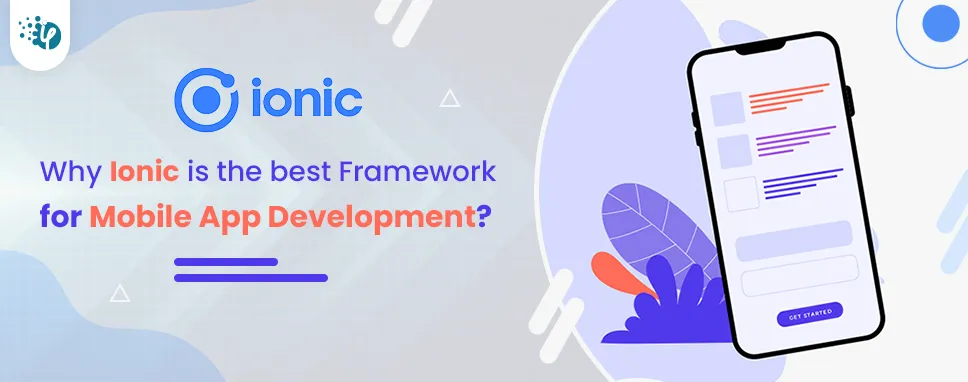4 Types of Healthcare Analytics with Examples & Success Stories
You already know how healthcare creates tons of clinical data every day. Patient visits… Labs… EMRs… doctor portals… scheduling systems… everything is generating numbers nonstop. But...
Listening is fun too.
Straighten your back and cherish with coffee - PLAY !

Software companies are flourishing, with new ideas and tools being developed to help businesses compete in the market. Smartphones are one of those which brought a drastic change in businesses today. With the number of users that can be reached through a single app, it is not hard to see why this technology field is booming.
Statistics show that there are more than 6.6 billion mobile phone users in 2022, representing a 4.9% rise in yearly usage. This demonstrates the popularity of mobile platforms and apps.
Mobile app users’ statistics 2022
With increased competition, businesses must design apps that are both engaging and competitive, because providing a good user experience is no longer an option today.
Despite having billions of mobile users, it is not assured to discover leads so easily. Every user seeks the finest user experience and begins switching to other applications if it is not provided effectively.
To develop promising mobile apps, a leading Mobile app development framework is essential. Apps built using these frameworks can offer tremendous features and a long-lasting user experience.
Ionic Framework is an open-source framework for building mobile applications. It is a self-contained SDK that provides all the necessary tools and services for developing native-quality mobile apps.
Ionic is based on AngularJS and comes with a large number of built-in features, such as an Ionic CLI, a UI library, and a debugging tool. It uses Apache Cordova to access native device features and provides a platform for third-party services, such as push notifications and analytics.
So, if you want to create digital experiences rather than just mobile apps, Ionic is a great choice.
The Ionic is a popular choice in mobile application development frameworks in the software industry. It offers a wide range of features that make it a good choice for developing high-quality mobile apps.
Some of the key features of the Ionic framework include:
Ionic provides a wide range of UI components that can be used to build rich and interactive mobile apps. The framework is based on Angular and comes with several in-built features such as form validation, routing, and API integration. Ionic also provides a CLI (Command Line Interface) tool for creating and building Ionic apps.
The Ionic CLI is a powerful command-line tool that can be used to scaffold, build, test, and deploy Ionic apps. The CLI is a great tool for quickly scaffolding new Ionic projects and for running Ionic apps in a simulator or on a device. In addition to the CLI, the Ionic framework also provides a wide range of tools and services for developing Ionic apps.
The Ionic community is large and active, and there are many resources available to help developers get started with Ionic. It is an open-source code that is used to build mobile applications for the businesses.
It has a strong community of developers who are constantly creating new plugins and components to extend its functionality. It also has a large number of ready-made templates and themes that can be used to create beautiful, user-friendly apps.
Ionic is a flexible framework that can be used to build apps for a variety of platforms, including iOS, Android, and the web. It offers a wide range of features and capabilities, making it a great choice for businesses of all sizes. Ionic is easy to use and scale, making it a great choice for businesses of all sizes.
Ionic provides a range of pre-designed UI components and tools for building user interfaces, making it easier for developers to create visually appealing and user-friendly apps. Another benefit of Ionic is its strong community support and extensive documentation, which can help developers get up to speed quickly and find solutions to common problems.
Overall, Ionic is a powerful and widely used framework that can greatly facilitate the development of cross-platform mobile applications.
One of the main advantages of using Ionic is that it allows developers to build applications that can run on both iOS and Android platforms using a single codebase. This can save a significant amount of time and resources compared to building separate apps for each platform. Let’s look at some other benefits..
The ionic framework is an open-source framework for building cross-platform mobile applications. It is free to use and extend and comes with a wide variety of built-in components that make it easy to get started. Ionic is also widely adopted, with a large community of developers and a wide range of plugins and tools available.
The ionic framework is an open-source SDK that enables developers to build cross platform mobile applications with HTML, CSS, and JavaScript. Ionic is a popular choice for developing hybrid mobile applications as it offers a wide range of UI components and tools for developing rich and interactive mobile applications.
Ionic framework uses Cordova to access native device features and enable developers to build robust and feature-rich mobile applications.
The ionic framework is an open-source project that helps developers build cross-platform mobile applications. The framework is designed to provide a user experience that is consistent across different devices and operating systems.
The ionic framework provides a set of tools and services that can be used to create and optimize mobile applications. The framework includes a command line interface, a platform-independent SDK, and a library of UI components.
Ionic apps can be tested on a variety of devices and platforms using the Ionic CLI. The Ionic CLI is a command line interface that can be used to build, test, and deploy ionic apps. The Ionic CLI can be installed on a variety of platforms, including macOS, Windows, and Linux.
Ionic apps can also be tested using the Ionic Lab. Ionic Lab is a desktop application that allows developers to test their ionic apps on a variety of devices and platforms. Ionic Lab can be downloaded from the Ionic website.
In addition to the Ionic CLI and Ionic Lab, Ionic also provides a number of services for testing ionic apps. Ionic services can be used to test apps on a variety of devices and platforms.
The ionic framework is designed to make full use of Cordova plugins. This allows developers to create hybrid mobile apps that can take advantage of the native functionality of the device, while also being able to access the vast array of Cordova plugins that are available.
This makes it possible to create apps that are much more powerful and flexible than traditional web apps.
Ionic is a framework for building mobile applications using AngularJS. It is a cross-platform framework, which means it can be used to develop applications for both iOS and Android. Ionic is open-source, which makes it free to use. Ionic is based on the Cordova framework, which provides a set of APIs for accessing native device features.
Ionic is a powerful framework for building native mobile apps using web technologies such as HTML, CSS, and JavaScript. Ionic provides a rich set of tools and services for building cross-platform mobile apps.
Ionic App Integration is a service that allows you to easily integrate your Ionic-based app with other services and platforms. With Ionic App Integration, you can connect your app to a variety of services and platforms, including social networks, data storage services, and push notification services.
Ionic is cost-effective because it is open-source and free to use. Also, it takes less time to develop an app using Ionic. This is because Ionic uses HTML, CSS, and JavaScript, which are all web technologies that are easy to learn and use.
Additionally, Ionic has a large community of developers who are willing to help with development, so you don't need to hire a separate development team.
The Ionic framework is designed to be a high-performance app guaranteed. It uses a number of techniques to optimize app performance, including code minification, bundling, and tree shaking.
In addition, Ionic apps are typically built with Angular, which is another high-performance framework. Ionic also provides a number of tools to help developers optimize their apps, including the Ionic CLI and the Ionic Deploy service.
Ionic provides a wide range of features and plugins that make it a powerful tool for developing mobile applications. One of the most useful features of Ionic is its native plugins.
Native plugins allow developers to access the native functionality of the device, such as the camera, contacts, and file system. This enables developers to create applications that are more responsive and perform better than traditional web applications.
Ionic is an open-source front-end SDK for developing hybrid mobile applications. Ionic is a great choice for mobile application development because it uses Web technologies like HTML, CSS, and JavaScript to build cross-platform apps.
Web technologies are the same ones that power web browsers, so the skills and tools you use to create websites can be applied directly to building Ionic applications.
Because Ionic apps use Web technologies, they can be deployed to the App Store, Google Play, and the Amazon Appstore with just a few steps.

You already know how healthcare creates tons of clinical data every day. Patient visits… Labs… EMRs… doctor portals… scheduling systems… everything is generating numbers nonstop. But...

Let’s keep it simple. In healthcare, trust, safety, and human dignity come first, no matter what solution you build. The same applies to AI. Today, it is everywhere, from clinics...

Let's keep it real. The whole point of building autonomous Agents is to cut manual work and keep focus on business. Approvals that used to take days can happen in hours because...